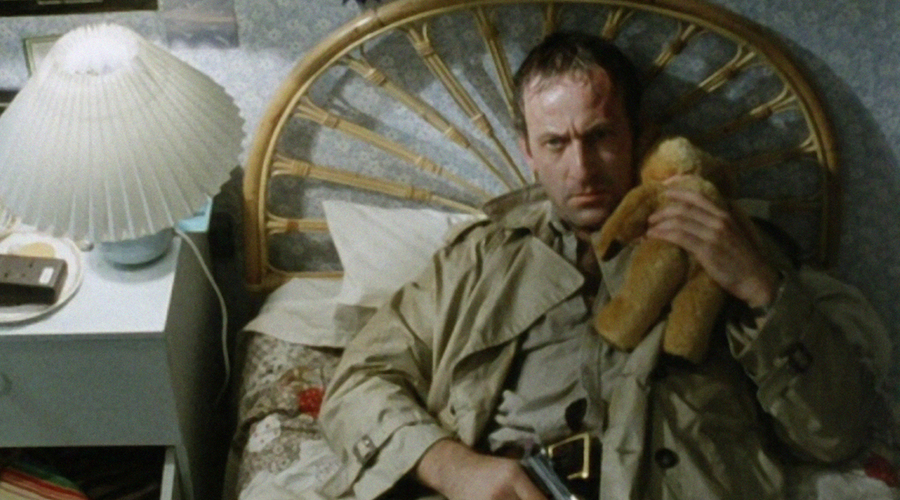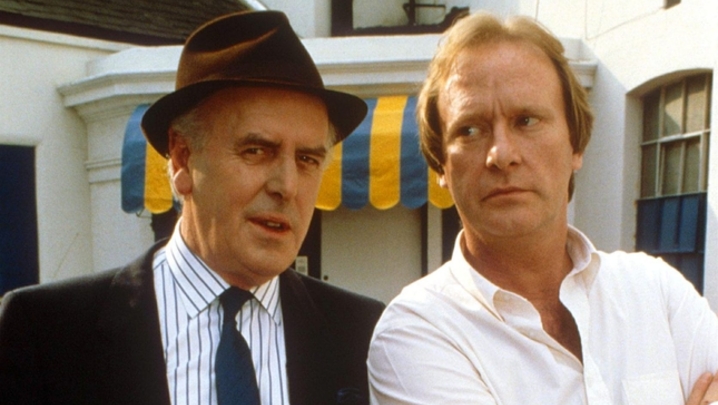Matthew Bell celebrates a poetic, gripping and harrowing political thriller that is, sadly, just as relevant today.
Little, it seems, has changed in the 36 years since Edge of Darkness was first shown. Conspiracy and cover-up, environmental devastation and the threat of nuclear destruction were stitched into the fabric of the 1980s and are no less relevant now.
If this were all that Edge of Darkness had offered, however, it wouldn’t be so fondly remembered or, indeed, recognised by many critics as British TV drama’s finest moment.
Television has excelled at the political thriller, from Alan Plater’s A Very British Coup to Paul Abbott’s State of Play to, most recently, Jed Mercurio’s Bodyguard. But Edge of Darkness transcends the genre. The six-part series is hugely ambitious, by turns grandiose and intensely personal. It says more about love and heart-rending loss than almost anything I have seen.
It starts with a horrifying murder when Emma (Joanne Whalley), the daughter of policeman Ronnie Craven (Bob Peck), is gunned down in front of him. Was Craven the real target of the killer, perhaps a criminal with a grudge? Or was Emma’s involvement in an anti-nuclear group called Gaia the motive?
Peck, a virtual newcomer to TV but a Royal Shakespeare Company regular, gives a towering performance as a man consumed by grief. He is haunted by Emma’s death, constantly hearing and seeing her as he tries to find the killer. Craven’s quest takes him into a world of double-dealing, peopled by cynical MI5 and CIA spooks. This is the 1980s of Margaret Thatcher and Ronald Reagan, the escalation of the Cold War and much sabre rattling, but with nuclear missiles as politicians’ weapons of choice.
Conspiracy dramas are normally naturalistic in style and Edge of Darkness can be, usually when the plot needs to move forwards or when one of the real-life people and places that pepper the drama appear on screen.
But what makes the series magnificent is its strangeness, whether it’s Emma’s ghost or the ecological mysticism that pervades the series. Students of environmental theory will immediately relate the name of Emma’s group of activists to the Gaia hypothesis of scientist James Lovelock, which sees the Earth as a self-regulating organism. Lovelock is still writing about the environment at the age of 102.
Edge of Darkness premiered on BBC Two in November 1985 to immediate critical acclaim and strong audiences, winning a repeat showing on BBC One within days of the final episode airing, and doubling its audience.
When the TV awards were divvied up the following year, the series took more than its share. Its six Baftas included Drama Series, Actor (Peck) and Music for the atmospheric score of Eric Clapton and Michael Kamen.
Its huge success shouldn’t have come as any surprise, given the talent involved in the series. Writer Troy Kennedy Martin co-created TV’s first modern cop series, Z Cars, and wrote The Italian Job, that most iconic of British movies.
Michael Wearing had already produced Boys from the Blackstuff and went on to executive produce Our Friends in the North, giving him a hat-trick of involvement in, arguably, British television’s three greatest dramas.
Director Martin Campbell shot Edge of Darkness like a feature film and then went on to direct movies, including Daniel Craig’s 2006 Bond debut in Casino Royale, one of the franchise’s best.
Twenty-five years later, Wearing and Campbell moved the story to the US and remade Edge of Darkness as a movie, with Mel Gibson in the Peck role and Ray Winstone’s British spook replacing Joe Don Baker’s CIA agent. “A moderate feature film,” reckoned Peter Bradshaw in his Guardian review.
Viewers are advised to stick with the original – British TV has never made a better, or stranger, political thriller.
Edge of Darkness is available to stream on Virgin TV Go or as a download on Amazon Video and Sky Store.



